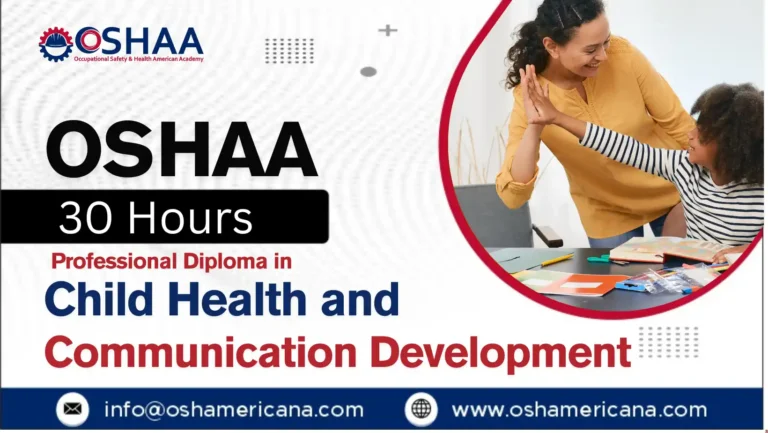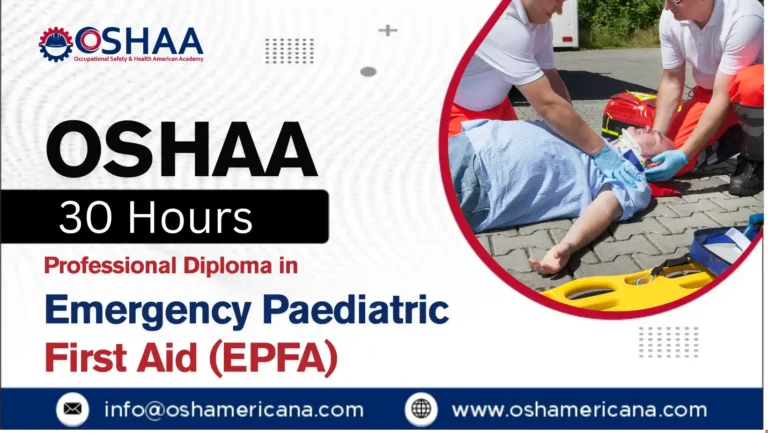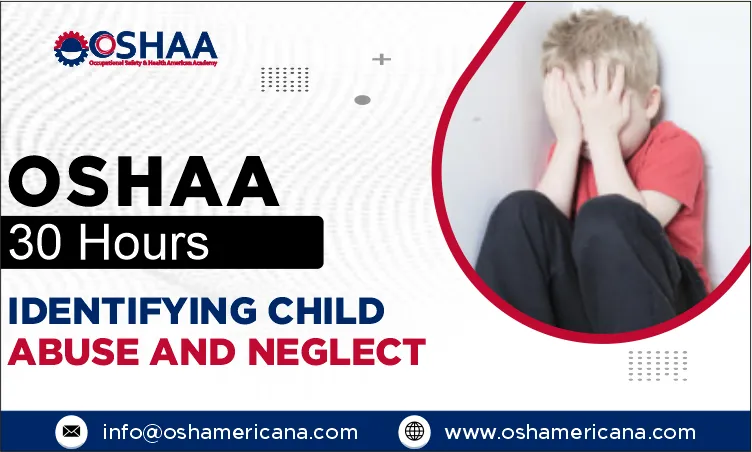Understanding child development is essential for educators, caregivers, and professionals working with children. The OSHAA 30-Hours Diploma in Child Development with Whole-Brain Approach offers an in-depth, practical, and scientifically grounded programme designed to equip participants with advanced knowledge and skills. This diploma focuses on holistic child development by integrating cognitive, emotional, social, and physical growth using the whole-brain methodology.
This 30-hour diploma programme is structured to provide participants with both theoretical insights and practical applications. Through interactive sessions, case studies, and workshops, participants will learn to identify developmental milestones, understand individual learning styles, and apply strategies to support children in diverse settings. The course also highlights the importance of early intervention and the role of environment and relationships in fostering optimal brain development.
The OSHAA 30-Hours Diploma in Child Development with Whole-Brain Approach not only enhances knowledge but also provides a recognised qualification that can open doors to further professional development and career opportunities in early childhood education, special needs support, and child psychology.
This diploma offers a comprehensive and evidence-based approach to child development, emphasising the importance of nurturing the whole brain for balanced growth. Participants who undertake this course will be better equipped to support children’s learning and development, ultimately helping to shape confident, capable, and well-rounded individuals.
OSHAA 30-Hours Diploma in Child Development with Whole-Brain Approach
Study Units
Learning Outcomes
Introduction to Child Development and Whole-Brain Theory (3 hours)
- Understand the fundamental concepts of child development
- Explain the principles of the whole-brain approach
- Recognise the importance of holistic development in children
- Describe how brain development influences learning and behaviour
Brain Anatomy and Functions in Early Childhood (3 hours)
- Identify key brain structures involved in early childhood development
- Explain the functions of different brain regions and their impact on learning
- Understand brain plasticity and its role in early childhood
- Recognise critical periods for brain development
Cognitive Development and Learning Styles (5 hours)
- Understand major cognitive development theories and milestones
- Identify different learning styles and their significance in education
- Apply strategies to support diverse cognitive abilities
- Assess and adapt teaching methods to suit individual learning preferences
Emotional and Social Development in Children (3 hours)
- Describe stages of emotional and social development in children
- Understand the role of emotional intelligence in child development
- Recognise factors influencing social skills and peer relationships
- Develop techniques to support positive emotional and social growth
Physical Development and Motor Skills (5 hours)
- Identify key milestones in physical development and motor skills
- Understand the relationship between physical growth and brain development
- Apply activities that promote fine and gross motor skills
- Recognise signs of delayed physical development and appropriate interventions
Whole-Brain Teaching Strategies and Techniques (5 hours)
- Apply whole-brain teaching methods in learning environments
- Develop lesson plans that engage both hemispheres of the brain
- Use creative and critical thinking exercises to enhance learning
- Evaluate the effectiveness of whole-brain teaching approaches
Identifying and Supporting Developmental Delays (3 hours)
- Recognise early signs of developmental delays in children
- Understand assessment tools and screening methods
- Develop intervention strategies tailored to individual needs
- Collaborate with families and professionals to support child development
Designing Inclusive and Stimulating Learning Environments (3 hours)
- Create learning environments that cater to diverse needs and abilities
- Incorporate sensory and cognitive stimuli to enhance engagement
- Promote inclusivity and accessibility in educational settings
- Evaluate and adapt environments to support optimal child development
Participants who undertake this diploma will gain a range of valuable benefits that enhance their professional skills and understanding of child development. These include:
- Comprehensive knowledge of child development from a whole-brain perspective, enabling a deeper understanding of how children learn and grow holistically.
- Practical skills to design and implement developmentally appropriate activities that stimulate both cognitive and emotional growth.
- Ability to identify early signs of developmental delays and apply effective intervention strategies, supporting children’s individual needs.
- Enhanced capacity to create inclusive and stimulating learning environments that cater to diverse learning styles and abilities.
- Improved teaching and caregiving techniques that foster creativity, critical thinking, and emotional intelligence in children.
- Recognition through a credible and structured diploma that can boost career prospects in education, childcare, psychology, and related fields.
- Increased confidence in collaborating with families, educators, and specialists to support children’s development comprehensively.
- Opportunities for professional development and progression into specialised roles in early childhood education and child development support.
- A deeper understanding of the importance of early intervention and how environmental factors influence brain development.
- Access to up-to-date research and evidence-based practices that promote best outcomes for children across various settings.
By completing this diploma, participants will be well-equipped to make a positive, lasting impact on the educational and developmental journeys of children.
The OSHAA 30-Hours Diploma in Child Development with Whole-Brain Approach is designed for a wide range of individuals who work with or care for children, including:
- Early childhood educators and teachers seeking to enhance their understanding of holistic child development and improve classroom strategies.
- Childcare professionals and caregivers who want to apply evidence-based techniques to support children’s growth and learning.
- Parents and guardians interested in learning about the whole-brain approach to better support their child’s development at home.
- Special education practitioners and therapists aiming to identify and address developmental delays effectively.
- Psychologists, counsellors, and social workers working with children and families who want to deepen their knowledge of brain development.
- Healthcare professionals involved in paediatric care and early intervention services.
- Students and graduates pursuing careers in education, psychology, social work, or child development.
- Anyone passionate about understanding child development comprehensively and contributing positively to children’s educational and emotional well-being.
This course provides participants with practical skills and theoretical knowledge to support children’s growth across diverse environments and professional roles.







